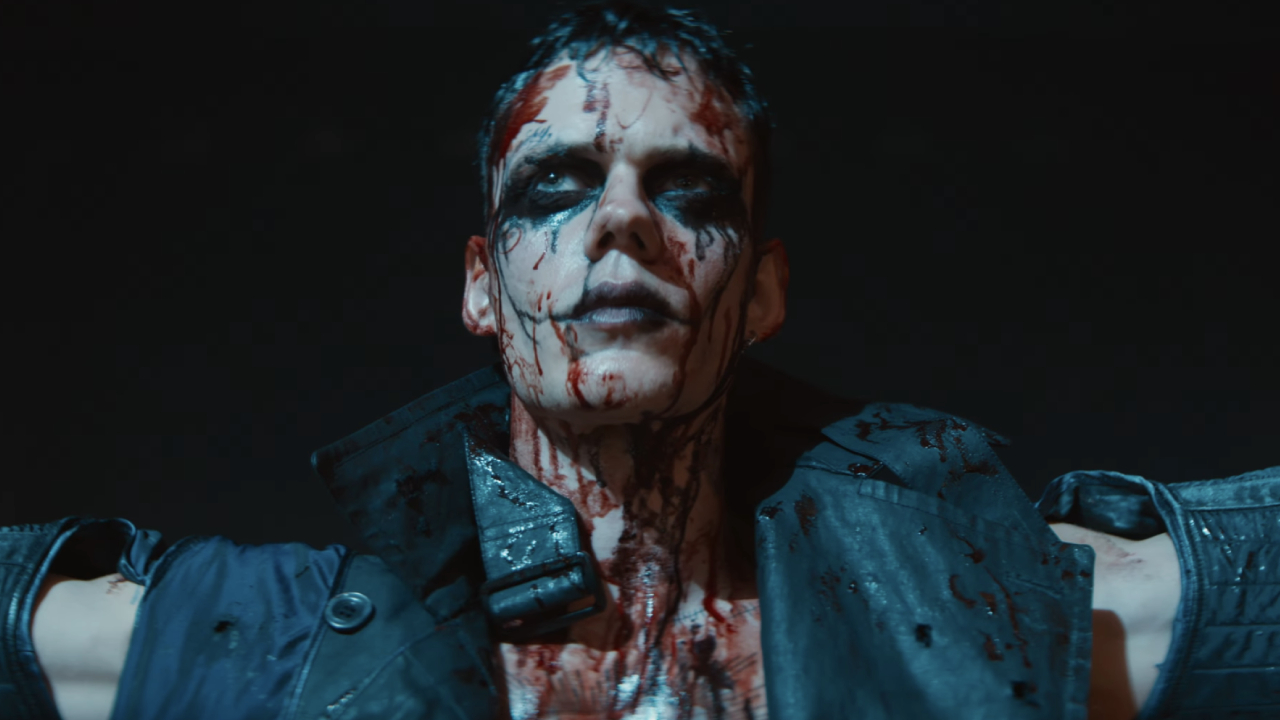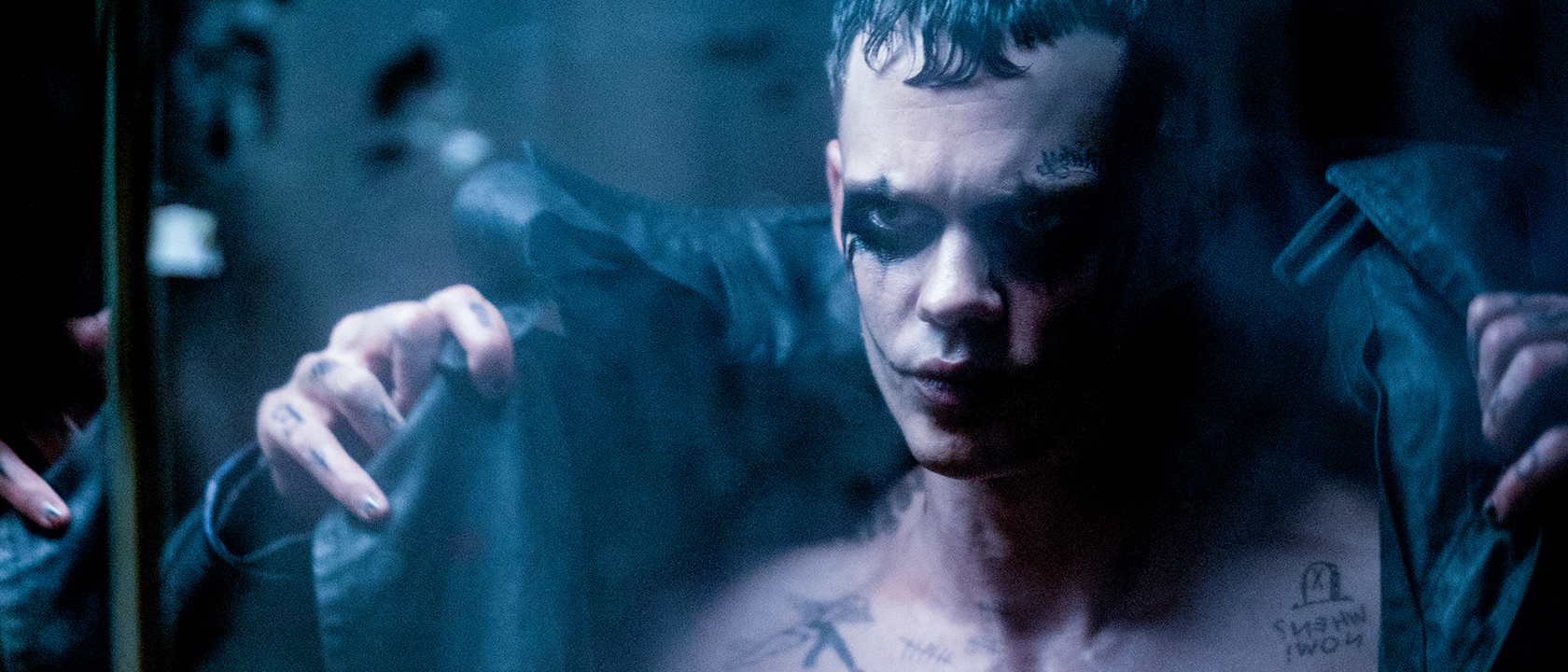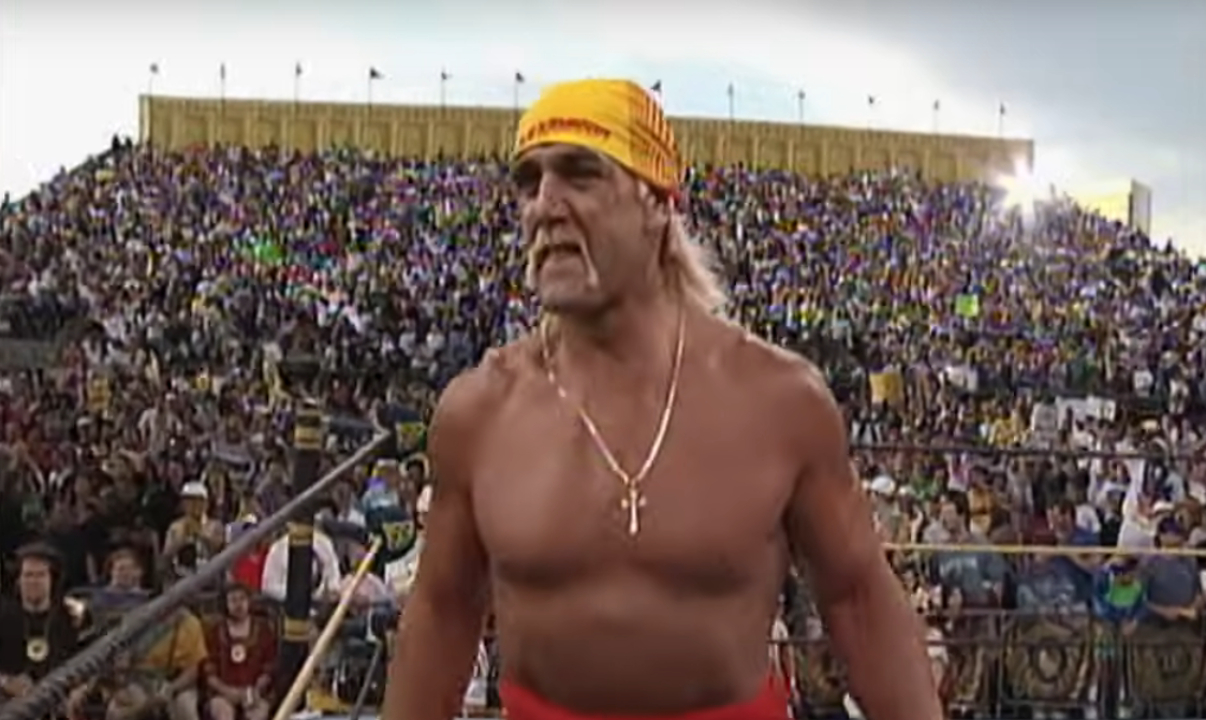I have spent more than a decade following Hollywood’s failed attempts to remake The Crow. Over the years, there have been a number of filmmakers attached (including Stephen Norrington, Juan Carlos Fresnadillo, F. Javier Gutierrez, and Corin Hardy), and the list of potential stars has included Bradley Cooper, Luke Evans, Jack Huston, and Jason Momoa. Its various setbacks resonated like punchlines, and it seemed like the cinema gods we’re sending a message.

Release Date: August 23, 2024
Directed By: Rupert Sanders
Written By: Zach Baylin and William Schneider
Starring: Bill Skarsgård, FKA Twigs and Danny Huston
Rating: R for strong bloody violence, gore, language, sexuality/nudity, and drug use
Runtime: 111 minutes
But no matter how many setbacks the project encountered, the powers that be in Hollywood evidently demanded that that the film be made – despite the painful memory of Brandon Lee’s tragic death on the set of the 1994 movie and a refusal of support from the original’s director, Alex Proyas.
So was this Dante-esque effort through development hell worth it? Not in the slightest. It’s a train wreck with no raison d'etre apparent beyond IP exploitation.
While the original is a shockingly elegant – albeit dark and violent – revenge tale given life by a charismatic lead, dynamic style and a memorable supporting cast, the reimagining is clumsy, thin, and as shallow as the murky puddle it feels like the whole movie was dragged through. It hinges everything it strives for emotionally on two stars with no on-screen chemistry, which leaves it without any stakes or characters you care about. It shares a title and some aesthetics with the modern classic and that’s all.
This new incarnation of Eric Draven (Bill Skarsgård) is introduced as an introverted, bullied inmate at a rehab facility, and he meets Shelly (FKA twigs) shortly after her own incarceration. The movie assumes that audiences will just click with them as two broken people finding each other who then team up to break out of the hospital and go on the run… but instead, it just drags for the first 40 minutes until we finally get the inciting incident that the audience has been painfully waiting for: Eric and Shelly are killed.
Prior to being arrested and sent to rehab, Shelly is involved with some literal “deal with the devil” individuals, and when she is sent a video from a friend of some evil action going down, a target is put on her head. When she meets Eric and breaks out of rehab, she decides to stay in the same city for some wholly unclear reason, and that leads to her being tracked down and killed along with her boyfriend.
In an afterlife that is basically an abandoned train station, Eric is told by an incredibly clichéd guide (Sami Bouajila) that Shelly’s soul has been sent to hell, but that his sadness connected to her unjust death will give him the opportunity to redeem her. He is immortal on Earth so long as his love for his girlfriend remains pure, and when his soul returns to his body, he sets about finding out what it was that Shelly was involved with – leading him back to a generic, music-loving suit named Vincent Roeg (Danny Huston) who has bargained with Satan for eternal life in exchange for the lives of innocents.
The Crow takes a simple revenge story and makes it a snore.
Revisiting 1994’s The Crow, one notes that it is a lean bit of storytelling. Saving audiences any heavy handed exposition, it immediately jumps into the action with the murder of its protagonist and trusts that you can understand the rules of the supernatural developments (which really aren’t that complicated) as Eric sets out on his righteous post-death rampage.
On the one hand, I can appreciate 2024’s The Crow for thinking that it would be a good idea for us to get to know the principal characters before their death, but it whiffs so terribly that it’s just a bore – and then the start of the second act is infected with lazy explanation of how things works in the afterlife. By the time it gets to the actual meat of the plot, it’s a challenge not to be totally checked out.
Helping nothing is that said plot is rote and trope-ridden, with not a single interesting twist or development to be found in the 111 minute runtime. No minds are going to be blown when Eric’s (wholly unearned) “pure love” for Shelly is challenged by shocking revelation, and there isn’t even a whisper of effort attempting to provide something creative on the antagonist side of the story.
I can’t recall the last time a movie was so incredibly incompetent in building supporting characters.
Danny Huston does the same gravelly-voiced professional evil performance that we’ve seen him put on in what feels like at least a dozen other bad films, but what’s almost impressive about how bad The Crow is rests in its ineptitude establishing supporting characters. There isn’t a single personality that emerges from Vincent Roeg’s team of killers who blindly follow his orders, rendering Eric’s path to the Final Boss stale and repetitive. There are some hardcore deaths that can be appreciated by those with a taste for cinematic gore (and account for that extra half star in my rating), but the violence is also the definition of gratuitous.
But The Crow isn’t exactly rich on Team Eric Draven either. That’s a roster that includes 1) Cliché Spirit Guide In The Train Station Afterlife, 2) Panicky Guy Eric Sees Talking To Shelly At A Club, and 3) Tattoo Artist Whose Place Eric Goes To After His Resurrection. How nobody saw the utter lack of interesting characters as a flaw in the script makes it very difficult to grasp how it got the green light to go into production.
Watching Rupert Sanders’ The Crow, it’s baffling in general to understand why this film was kept alive in development for so many years. There’s no exciting new angle on the story of Eric Draven that absolutely demanded to be presented on the big screen (nor an exciting screenwriting voice), and the long precession of filmmakers who signed on and then moved on says that there was never a particular vision that needed to be executed. It’s a pointless remake, and perhaps the only good in it is that its existence means we will likely never hear about another one and can go back to simply appreciating the original.

Eric Eisenberg is the Assistant Managing Editor at CinemaBlend. After graduating Boston University and earning a bachelor’s degree in journalism, he took a part-time job as a staff writer for CinemaBlend, and after six months was offered the opportunity to move to Los Angeles and take on a newly created West Coast Editor position. Over a decade later, he's continuing to advance his interests and expertise. In addition to conducting filmmaker interviews and contributing to the news and feature content of the site, Eric also oversees the Movie Reviews section, writes the the weekend box office report (published Sundays), and is the site's resident Stephen King expert. He has two King-related columns.











